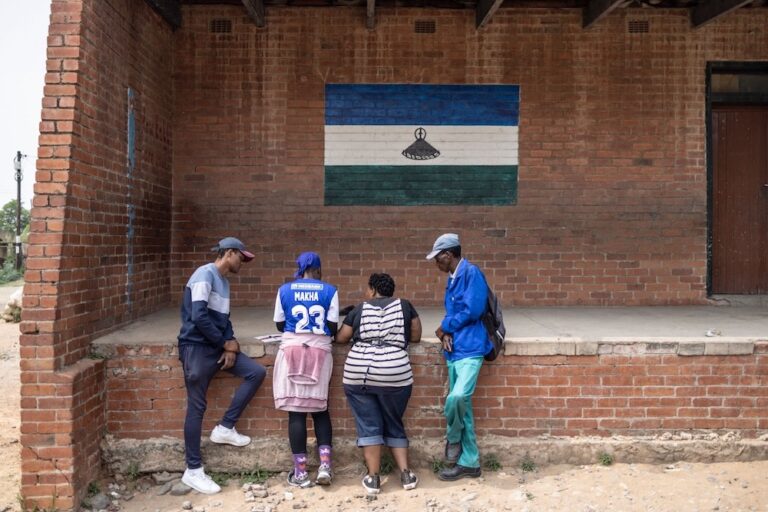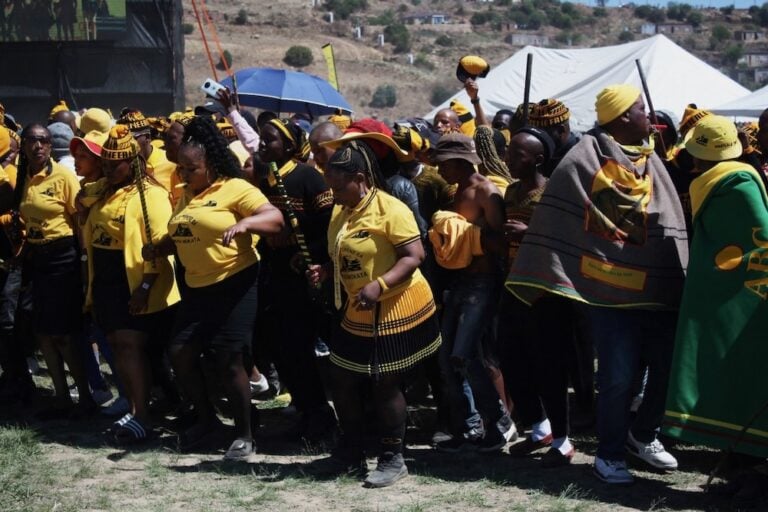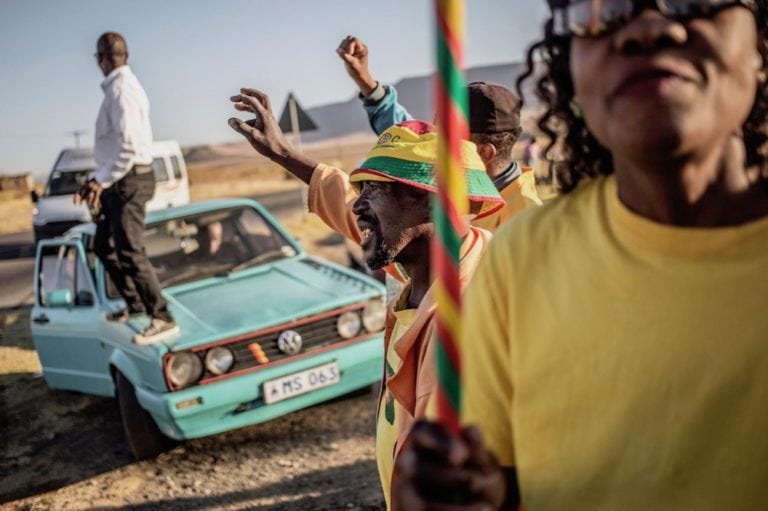(MISA/IFEX) – Late on 16 June 2003, MoAfrika Radio went off the air until midday (local time) on 17 June. The broadcast shutdown was intended to raise public attention and financial support to help the station pay off a civil defamation suit pending against it. MoAfrika Radio, registered under CR Communications (Pty) Ltd, faces closure […]
(MISA/IFEX) – Late on 16 June 2003, MoAfrika Radio went off the air until midday (local time) on 17 June. The broadcast shutdown was intended to raise public attention and financial support to help the station pay off a civil defamation suit pending against it.
MoAfrika Radio, registered under CR Communications (Pty) Ltd, faces closure due to a High Court judgment in favour of Moeketsi Sello in a civil defamation case. The judgment was passed on 22 December 1999 and re-affirmed by the Appeals Court in October 2000. The court instructed Candi Ratabane Ramainoane, MoAfrika’s owner, to pay Sello 90,000 maloti (approx. US$11,600) in compensatory damages and 15,000 maloti (approx. US$1,900) in punitive damages, with an annual interest rate of 18.5 percent.
Media practitioners, media houses and the general public are currently supporting MoAfrika through donations to help it pay off the sum due to Sello.
Under the Lesotho Law on Defamation, it is an offence for any individual or media outlet to publish or disseminate any information that is considered defamatory, be it from any other source than themselves, without first consulting with the party or parties referred to by the said source.
BACKGROUND:
Sello, a member of parliament, launched a civil defamation suit against “MoAfrika” magazine following a September 1996 article alleging that he was guilty of certain wrongdoing. At the time, Ramainoane indicated that the article had not been produced by his media house, but was a translation of a letter to the editor that quoted from a 1985 publication, “Lesotho and the struggle for Azania”, by one Bernard Leeman.
The legal action was taken based on Section 14 of the Printing and Publications Act of 1967. Despite Ramainoane having lost the court case, he still maintained that no damages had been suffered by the plaintiff since Sello was able to win his constituency in the May 1998 general election and become a member of parliament. On 22 December 1999, the Lesotho High Court found Ramainoane liable for defamation.
On 15 May 2003, MoAfrika Radio was served with a writ of execution by agents of the High Court of Lesotho to seize all movable property from the station’s premises as well as the personal property at Ramainoane’s residence. The court agents were informed that they could not continue with the seizure of property as Ramainoane was out of the country. They indicated that they would return to execute their duty at another date when the editor would be present.


